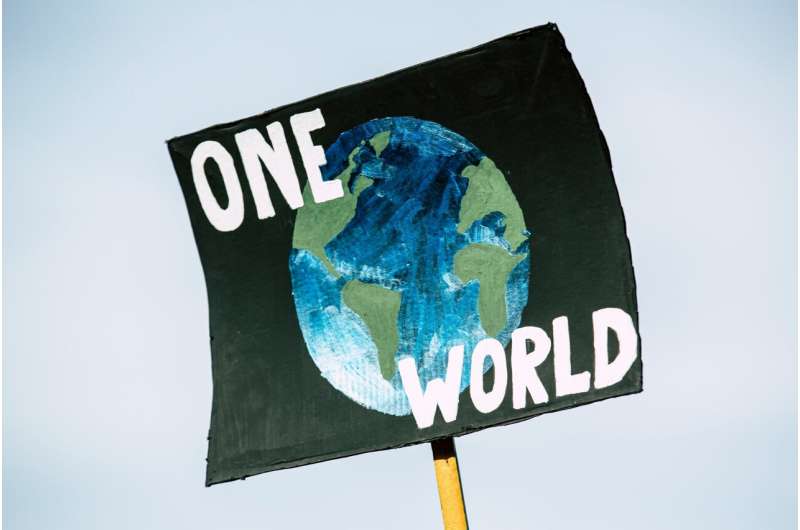This article has been reviewed according to Science X's editorial process and policies. Editors have highlighted the following attributes while ensuring the content's credibility:
fact-checked
peer-reviewed publication
trusted source
proofread
Exploring dimensions of justice in climate science

How can climate policy be made more just and fair? IIASA researchers have synthesized different dimensions of justice into a framework that can be used by climate scientists and policymakers, explaining how previous research has neglected many potential justice positions and how these can be implemented in policy contexts.
Dealing with climate change is not just about the environment—it is also about justice and fairness. This includes how we transition to cleaner ways of living, the different impacts on various groups of people, and who is responsible for what. Paying more attention to fairness and justice when making decisions will help policymakers devise better climate policies that people can agree on.
Currently, people however don't always understand or talk about these concepts in the same way. While experts may think about justice and fairness when they plan ways to, for example, reduce carbon emissions, they often don't explain it clearly, instead using different words and measures, which can confuse both researchers and the public. This confusion makes it harder to share and understand the results.
In their new paper published in Nature Climate Change, IIASA researchers propose a conceptual framework rooted in philosophical theory to address this gap in possibly the first systematic attempt to describe these different aspects or dimensions of justice for the climate domain in an interdisciplinary context.
Their innovative framework synthesizes distributional, procedural, corrective, recognitional, and transitional justice that can be used by scientists and policymakers.
The framework aims to enhance interdisciplinary understanding of climate justice to prevent its mischaracterization and its misuse to justify delayed climate action. Recognizing that justice can either support or hinder decarbonization efforts, the researchers note that more research on justice-related issues is essential for the next cycle of the Intergovernmental Panel on Climate Change (IPCC).
"This framework aims to achieve three goals: improve clarity by using terminology from justice scholarship; promote awareness and consistency in examining justice concerns as part of a coherent whole; and enhance comparability across scenarios and modeling contexts, to facilitate discussions on these issues," explains IIASA researcher Caroline Zimm, one of the study lead authors.
To implement this framework effectively, the authors propose the creation of a Justice Model Intercomparison Project (JUSTMIP) focused on mitigation scenarios.
"JUSTMIP would provide reporting templates for in-depth exploration of various research aspects, sectors, and model comparisons within the context of scenarios used by the next IPCC Assessment Report. This will raise awareness about the possibilities and limitations regarding justice considerations in these scenarios and enhance transparency," notes IIASA Energy, Climate, and Environment Program Director, Keywan Riahi.
"It is important to note that our framework does not aim to evaluate what is just or unjust but rather provides a structured platform for identifying and discussing justice considerations. By bringing clarity and consistency to the discourse surrounding climate justice, this framework will empower both researchers and policymakers to navigate the intricate justice landscape and ensure that justice is a fundamental aspect of climate policy decisions," concludes co-lead author Kian Mintz-Woo, a guest researcher at IIASA .
This pioneering work is a significant step toward a more holistic and multidimensional understanding of justice in the context of climate change, offering a valuable tool to advance climate policy and research worldwide.
More information: Zimm, C., Justice considerations in climate research, Nature Climate Change (2024). DOI: 10.1038/s41558-023-01869-0
Journal information: Nature Climate Change



















